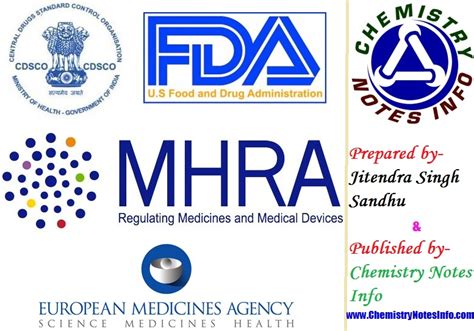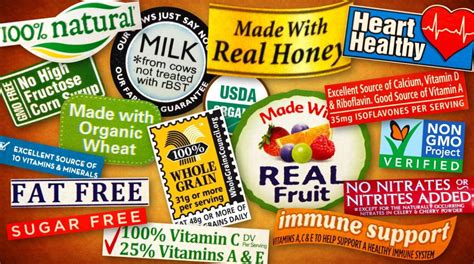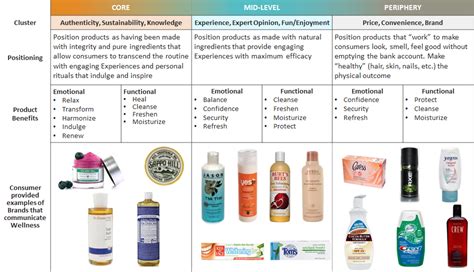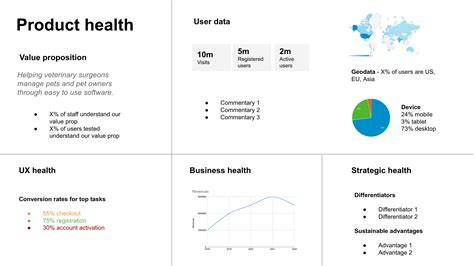How to Check the Legitimacy of Health Products
In today’s world, where health and wellness are paramount, the market is flooded with an array of products promising miraculous results. From weight loss supplements to herbal remedies, the choices can be overwhelming, leaving consumers wondering about the authenticity and safety of these products.
Before you invest your time and money in any health product, it’s crucial to exercise caution and ensure its legitimacy. This article aims to equip you with the knowledge and tools necessary to make informed decisions about the health products you choose.
Let’s delve into the most common questions consumers have regarding the legitimacy of health products.

How do I know if a health product is approved by the FDA?
The Food and Drug Administration (FDA) is the regulatory body in the United States responsible for ensuring the safety and effectiveness of food, drugs, and medical devices. While the FDA approves many health products, it’s important to understand the different approval processes and what they mean.
For drugs, the FDA requires rigorous clinical trials to demonstrate efficacy and safety before granting approval. These trials involve large groups of people and are designed to assess the drug’s effectiveness, potential side effects, and optimal dosage.
For dietary supplements, the FDA has a different approach. It doesn’t pre-approve supplements before they go to market but instead regulates them after they are available. This means the manufacturer is responsible for ensuring their supplement meets safety and quality standards.
Here’s how to check if a health product is FDA-approved:
- Check the product label: The FDA requires manufacturers to list their product’s approval status on the label. Look for terms like «FDA-approved» or «FDA-cleared,» which indicate the product has undergone the necessary regulatory review.
- Search the FDA website: The FDA has a comprehensive database of approved drugs and devices. You can search by product name or other criteria to see if a product is approved.
- Contact the FDA: If you’re unsure about a product’s status, you can contact the FDA directly for clarification.
Remember, even if a product is FDA-approved, it doesn’t necessarily guarantee its effectiveness or safety. Always consult with your healthcare provider before starting any new health product.
How can I verify the manufacturer’s claims about a health product?
Manufacturers often make bold claims about their products, touting their ability to cure various ailments or promote rapid weight loss. While some claims might be legitimate, others can be misleading or even false.
Here’s how to verify the manufacturer’s claims about a health product:
- Look for scientific evidence: Reputable manufacturers back their claims with scientific evidence from credible studies. Look for research published in peer-reviewed journals or conducted by independent organizations.
- Check for third-party certifications: Organizations like the National Sanitation Foundation (NSF) and Underwriters Laboratories (UL) provide independent certifications for various products, including health products. These certifications indicate that the product meets specific safety and quality standards.
- Read consumer reviews: Online platforms like Amazon and Healthgrades allow users to share their experiences with health products. Read these reviews to get a sense of other consumers’ experiences and potential side effects.
Beware of claims that sound too good to be true. If a manufacturer promises miraculous results without any scientific evidence, it’s a red flag.

What are some red flags to watch out for when buying health products?
While the pursuit of good health is admirable, it’s essential to be wary of deceptive practices that can jeopardize your well-being. Here are some red flags to watch out for when buying health products:
- Unrealistic claims: Products promising miraculous cures or overnight weight loss are likely to be scams. Be skeptical of claims that sound too good to be true.
- Lack of scientific evidence: Reputable health products will have scientific evidence to support their claims. If the manufacturer doesn’t provide any scientific data or relies on anecdotal evidence, it’s a red flag.
- High-pressure sales tactics: If you’re pressured to buy a product immediately or are bombarded with testimonials without any scientific backing, it’s a sign of a potential scam.
- Missing or incomplete information: Pay attention to the product label and any accompanying materials. If there’s missing or incomplete information about ingredients, dosage, or potential side effects, it’s a cause for concern.
- Unlicensed or unregulated manufacturers: Check if the manufacturer is licensed and regulated by relevant authorities. Avoid products from companies that operate without proper authorization.
- Unsolicited offers: Be wary of unsolicited emails or phone calls promoting health products. Legitimate companies usually don’t resort to such tactics.
Remember, if something seems too good to be true, it probably is. Always err on the side of caution and do your research before purchasing any health product.
What are some websites or organizations that can help me verify the legitimacy of health products?
Fortunately, there are numerous resources available to help consumers navigate the complex world of health products and verify their legitimacy.
- Food and Drug Administration (FDA): The FDA website provides information on approved drugs, devices, and dietary supplements. You can search for specific products or browse their resources for guidance on purchasing health products.
- National Institutes of Health (NIH): The NIH offers comprehensive information on various health topics, including dietary supplements. Their website features research findings, fact sheets, and resources for consumers.
- National Center for Complementary and Integrative Health (NCCIH): The NCCIH is a part of the NIH and focuses on complementary and integrative health approaches. Their website provides information on the safety and effectiveness of various natural remedies and practices.
- Consumer Reports: Consumer Reports is an independent organization that conducts product testing and provides unbiased reviews. Their website offers reviews of various health products, including dietary supplements and over-the-counter medications.
- Better Business Bureau (BBB): The BBB is a non-profit organization that collects and shares information about businesses. You can check a company’s BBB rating and read customer reviews to get a sense of their reputation.
These websites and organizations provide valuable information and resources to help you make informed decisions about your health.
What about products sold online? Are they trustworthy?
The internet has revolutionized the way we shop, making it easier to find and purchase health products from around the world. However, this convenience comes with its share of risks. It’s crucial to exercise extra caution when buying health products online.
Here are some tips for buying health products online safely:
- Buy from reputable websites: Stick to established online retailers with a good reputation and a secure payment system. Look for sites with HTTPS encryption and customer reviews.
- Verify the seller’s credentials: Ensure the seller is licensed and authorized to sell health products. Check for contact information, physical address, and any relevant certifications.
- Read product descriptions carefully: Pay attention to the product description, ingredients, dosage, and potential side effects. Look for any information about the manufacturer’s credentials or clinical trials.
- Check for return policies: Ensure the seller has a clear return policy in case you’re dissatisfied with the product.
- Compare prices: Shop around and compare prices from different sellers. Avoid deals that seem too good to be true.
If you’re unsure about the legitimacy of a website or seller, it’s best to err on the side of caution and shop elsewhere.
How can I report a suspicious or fraudulent health product?
If you encounter a health product that you believe is suspicious or fraudulent, it’s important to report it to the relevant authorities. This will help protect other consumers from potential harm.
Here’s how to report a suspicious health product:
- Contact the FDA: The FDA has a reporting system for suspicious or fraudulent health products. You can file a complaint online or by phone.
- Contact the Federal Trade Commission (FTC): The FTC is responsible for enforcing consumer protection laws. You can file a complaint with the FTC if you believe you’ve been scammed by a health product seller.
- Report to your state attorney general: Many state attorneys general have consumer protection divisions that handle complaints about deceptive or fraudulent businesses.
Reporting suspicious health products can help protect consumers and hold fraudulent companies accountable.
What are some common scams related to health products?
Scammers often target individuals seeking health solutions, exploiting their vulnerabilities and desire for quick fixes. Here are some common scams related to health products:
- Weight loss scams: Products promising rapid weight loss without diet or exercise are often scams. These products may contain harmful ingredients or simply don’t work as advertised.
- Miracle cure scams: Scammers often claim to have discovered a cure for serious illnesses like cancer or Alzheimer’s disease. These claims are often false and can lead consumers to delay seeking proper medical care.
- Dietary supplement scams: Scammers often exaggerate the benefits of dietary supplements, claiming they can cure everything from anxiety to arthritis. Always consult with your healthcare provider before taking any supplements.
- Fake product scams: Scammers often sell counterfeit or knock-off health products, claiming they are the real deal. These products may be ineffective or even dangerous.
To avoid falling victim to scams, always do your research and be skeptical of claims that sound too good to be true.
Can I get my money back if I buy a fraudulent health product?
If you’ve purchased a fraudulent health product, you may be able to get your money back. However, this is not always guaranteed.
Here’s what you can do:
- Contact the seller: The first step is to contact the seller and request a refund. Explain that you believe the product is fraudulent and provide any evidence you have to support your claim.
- File a chargeback with your credit card company: If the seller refuses to provide a refund, you can file a chargeback with your credit card company. This allows you to dispute the charge and potentially get your money back.
- File a complaint with the FTC or your state attorney general: Filing a complaint with the FTC or your state attorney general can help put pressure on the seller and potentially lead to a refund.
The success of your efforts to get a refund will depend on the specific circumstances and the seller’s willingness to cooperate.
How can I stay informed about the latest health product scams?
Staying informed about the latest health product scams is crucial to protecting yourself from falling victim. Here are some ways to stay informed:
- Subscribe to consumer protection newsletters: The FDA, FTC, and other consumer protection organizations send out newsletters and alerts about scams and fraudulent products.
- Follow reputable consumer protection websites: Websites like Consumer Reports, BBB, and the National Consumers League provide updates on scams and consumer alerts.
- Read news articles and reports: Major news outlets often report on health product scams and investigations.
- Talk to your healthcare provider: Your doctor or pharmacist can provide you with valuable information about the latest health product scams and provide guidance on safe and effective options.
By staying informed and being vigilant, you can protect yourself from falling victim to scams and make informed choices about your health products.
Summary Table
| Question | Answer |
|---|---|
| How do I know if a health product is approved by the FDA? | Check the product label, search the FDA website, contact the FDA. |
| How can I verify the manufacturer’s claims about a health product? | Look for scientific evidence, check for third-party certifications, read consumer reviews. |
| What are some red flags to watch out for when buying health products? | Unrealistic claims, lack of scientific evidence, high-pressure sales tactics, missing or incomplete information, unlicensed or unregulated manufacturers, unsolicited offers. |
| What are some websites or organizations that can help me verify the legitimacy of health products? | FDA, NIH, NCCIH, Consumer Reports, BBB. |
| What about products sold online? Are they trustworthy? | Buy from reputable websites, verify the seller’s credentials, read product descriptions carefully, check for return policies, compare prices. |
| How can I report a suspicious or fraudulent health product? | Contact the FDA, contact the FTC, report to your state attorney general. |
| What are some common scams related to health products? | Weight loss scams, miracle cure scams, dietary supplement scams, fake product scams. |
| Can I get my money back if I buy a fraudulent health product? | Contact the seller, file a chargeback with your credit card company, file a complaint with the FTC or your state attorney general. |
| How can I stay informed about the latest health product scams? | Subscribe to consumer protection newsletters, follow reputable consumer protection websites, read news articles and reports, talk to your healthcare provider. |
Frequently Asked Questions

Is it safe to buy health products from social media?
While social media platforms can be a source of information, exercising caution is crucial when purchasing health products from these platforms. Social media often lacks the same level of regulation as traditional marketplaces. It’s crucial to verify the seller’s credentials and look for independent reviews before making any purchases.
Can I trust products sold in discount stores?
The legitimacy of health products sold in discount stores can vary. Some stores offer reputable products, while others may sell counterfeit or expired products. It’s essential to be cautious and check the product’s label, expiry date, and any accompanying information. If you have doubts, it’s always best to contact the manufacturer or a healthcare professional for clarification.
What if a health product doesn’t work for me?
If a health product doesn’t work for you, it’s crucial to discontinue use and consult with your healthcare provider. It’s essential to understand that individual responses to health products can vary, and what works for one person may not work for another. Your healthcare provider can assess your specific needs and provide alternative options.
How can I avoid scams related to health products?
Staying informed, being skeptical of claims that sound too good to be true, doing your research, and consulting with your healthcare provider are crucial steps in avoiding scams related to health products. Always check for scientific evidence, third-party certifications, and independent reviews.
Can I get my money back if a health product is ineffective?
Whether you can get your money back for an ineffective health product depends on the seller’s return policy and the specific circumstances. Some sellers may offer refunds for ineffective products, while others may have stricter policies. It’s always best to read the return policy carefully before making any purchase.
How can I protect myself from harmful ingredients in health products?
Reading the product label carefully, understanding the potential side effects, and consulting with your healthcare provider are crucial steps in protecting yourself from harmful ingredients in health products. Pay attention to any warnings or precautions listed on the label, and discuss your concerns with your doctor or pharmacist.
What is the best way to find legitimate health products?
The best way to find legitimate health products is to consult with your healthcare provider. They can recommend products based on your individual needs, health history, and medical conditions. You can also research products online and check for scientific evidence, third-party certifications, and independent reviews.
